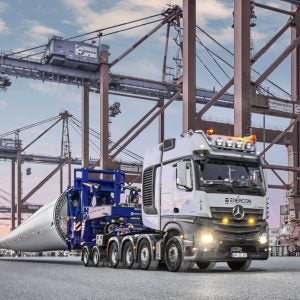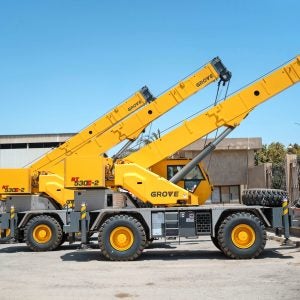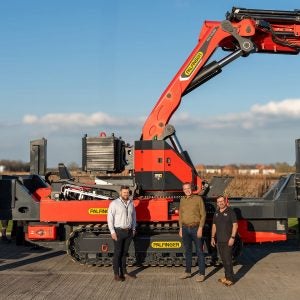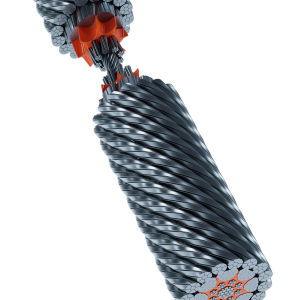Involving a number of stakeholders from the UK’s Nuclear Decommissioning Authority (NDA) and the Low Level Waste Repository (LLWR) to recycler Studsvik, site operators Magnox, service provider Energy Solutions and ALE, the project will result in the first fully recycled nuclear boilers in the UK.
ALE was tasked with transporting the boiler units a distance of four miles between the sites of the decommissioned nuclear reactor and Sharpness Docks, both in Gloucestershire, UK.
Transported to the docks on 18-axle line Nicolas trailers, each trailer attached to a push-pull heavy ballast tractor at the front and rear, the 21.3m long boilers were then transferred to river barge for transport down the Bristol Channel to Avonmouth Docks, before shipping to Studvik’s recycling facility in Nyköping, Sweden.
ALE business development manager, Nigel Kitt, said: “The project is a huge step forward for the future of nuclear decommissioning, and ALE is proud to be a part of it.”
Although at 310t the boiler units were far from the largest things ALE have transported, the project was a complicated one due to its location on the former nuclear site.
In preparation for transport the boiler units, which had been stored in an outdoor area on the facilities grounds, needed to be lifted onto the trailer whilst intact despite the absence of suitable lifting points.
Owing to their close proximity to one of the site buildings, the initial idea of performing a tandem lift using a pair of mobile cranes was ruled out due to the lack of slewing room.
In addition, limits on the ground bearing pressure on-site were particularly strict due to the ground conditions under the boilers limiting the acceptable amount of pressure to below 70 mPa. This prevented the use of a suitable gantry crane.
Instead ALE decided raise the boilers with climbing jacks, using the same method ALE used when performing restoration work on London’s maritime historical tourist attraction the Cutty Sark.
The boilers were raised high enough for the load to be skidded onto smaller Goldhofer trailers, which were used to keep the entire load within the ground bearing pressure limits during on-site transport.
After this, they were transported to the Nicolas trailers for the final transport runs.
Three of the 5.3m diameter boilers have already been transported to Sheerness Docks, with the final two boilers being transported today.
Once in Sweden each heat exchanger will be shot blasted, melted, treated, before 90% of each boiler is recycled, with the remaining 10% of secondary waste transported back to the UK for disposal by the LLWR.
Brian Burnett of the NDA said: “The Berkeley boilers had become a symbol of inactivity, of what’s not happening in the decommissioning world. So I am extremely happy with the outcome of this project and with the levels of cooperation and effort from everyone involved.”






